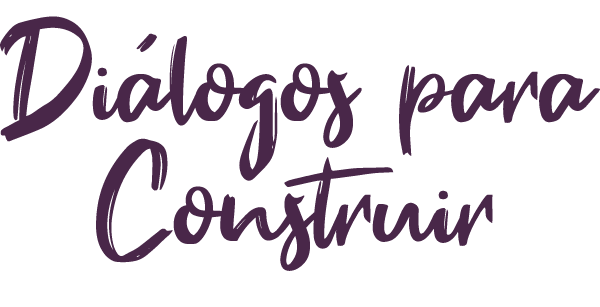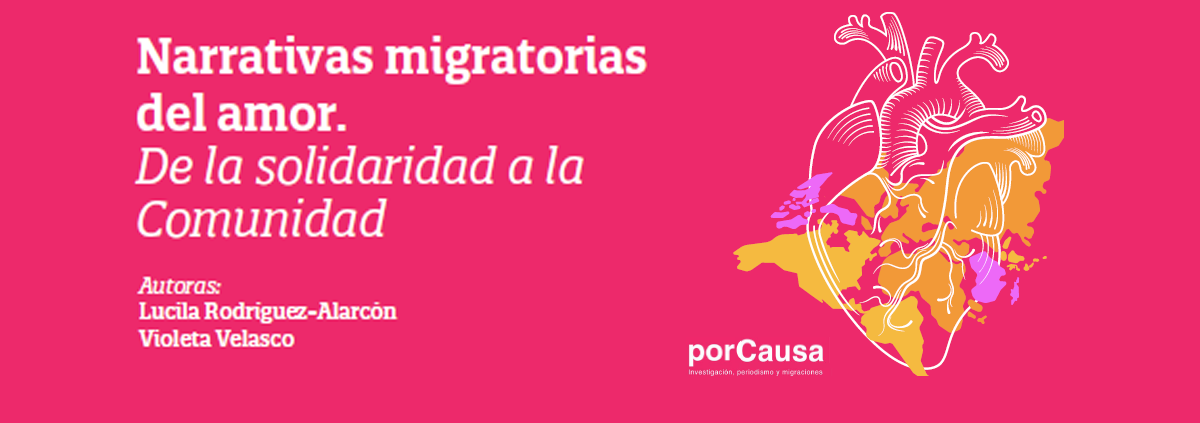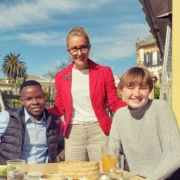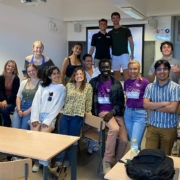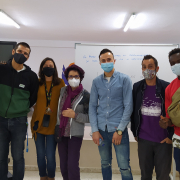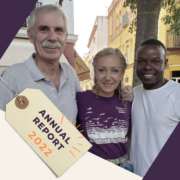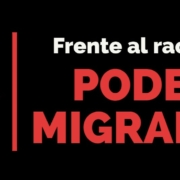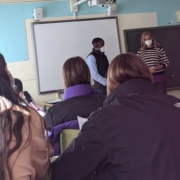Migratory narratives of love: is it possible to change the story?
Orality and writing have been the basis for the construction of culture. What we read, what we see, what we hear will influence how we feel and think about what surrounds us. What if we start putting a little LOVE into our daily narrative? And, even more risky… can we narrate from LOVE topics as complex as MIGRATION?
With the aim of continuing to highlight actions and proposals for positive communication on migration, from Migrations +, we tell you about “The Migratory Narratives of Love. From Solidarity to Community”, a proposal that is the result of much study and a very deep social and anthropological research work carried out by the porCausa Foundation.
The porCausa Foundation is a non-profit organization based in Spain that is dedicated to research, journalism and communication on migration issues.
Its objective is to contribute to the development of fairer and more effective public policies, through the production of rigorous studies and analysis, training and awareness-raising of civil society and participation in public debate.
The report “Migratory Narratives of Love. From Solidarity to Community”, was born in this context of work, under the authorship of Lucila Rodríguez-Alarcón and Violeta Velasco. In it they talk about “love” not as a romantic concept but as a fraternal one, which makes us see each other as equals, which unites us in our differences and promotes diversity.At the beginning of the study, it is interesting how the ideas proposed allow us to recognize the reasons why communities tend to weaken, making the social fabric and the ties that bind them together more fragile. It is there where feelings of rejection towards those we consider different easily creep in.
A competition… a threat…
When talking about migration, unfortunately, discourses that feed racism and discrimination tend to prevail. The other person is seen as a threat, someone who invades a territory, who takes advantage of resources, who “contaminates” the native culture. There is also the risk that these ideas are hidden even in actions, apparently, of generous vocation and intended to benefit the other.
“In the specific case of the migratory narrative, this is especially flagrant. Considering the other as someone absolutely different turns that third party into a potential competitor. At first the discourse of help may work, but the moment our foundations of well-being are in danger, what was compassion quickly turns into prevention. This view of the other as different and to some extent inferior is the gateway to hate speech”.
What narrative solutions do they propose?
In short, confrontation is never a good alternative. We must work on the creation of an alternative discourse that is gaining space. We must take advantage of all possible contexts to promote intercultural exchange in an authentic way.
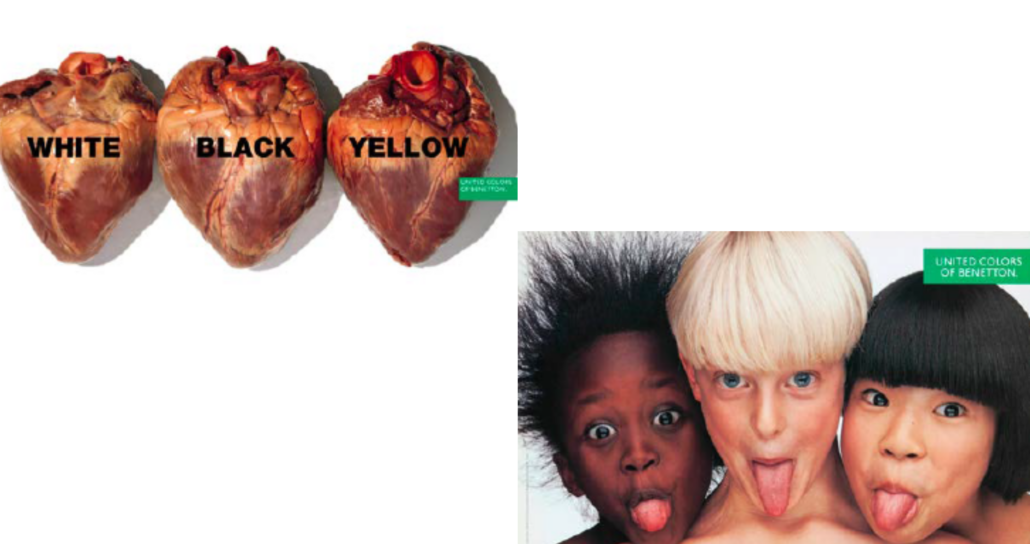
Digital platforms have become decisive spaces for coexistence. And just as xenophobic information is spread, we can also generate content with a narrative “from love”. What they propose from this study is: avoid REACTIVE messages, avoid “us – them” separations and PRIORITIZE feelings over data.
This proposal also highlights the importance of making people feel useful and powerful, with an important role in redefining the spaces for action and change. Our Raindrops Program is also aimed at this task, bringing apparently distant migratory realities closer to our daily lives, and thus improving coexistence.
This study seems to us a very valuable tool to have as a reference when generating content on migration. You can access the complete study HERE. Congratulations to Fundación porCausa for this initiative and we join, from Diálogos Para Construir, to continue narrating from love!
